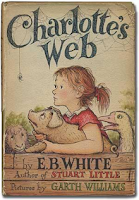In this post, I outline a Summer reading campaign I designed for middle and high schoolers to use that promotes the concept of "doing and being well"!
 |
| The Summer Reading campaign "Doing and Being Well" is available as an educational digital download on my TpT store. |
Summer is finally here, and for many of us, that means taking a well-deserved break from the demands of school or work. However, even though the academic year has ended, we should continue learning and growing. Reading is one of the best ways to expand our minds and stay engaged during the summer.
Fortunately, many schools and libraries recognize the importance of summer reading and publish campaigns to promote it. However, not all summer reading lists are created equal. If you're looking for a summer reading campaign designed to engage and challenge students while supporting their critical thinking skills, look no further than this comprehensive campaign created by a thoughtful educator.
Design an Immersive Campaign that Provides Plenty of Resources
 |
| Create an easy-to-read newsletter and poster to promote your reading initiative. |
The campaign includes various materials to keep readers engaged and motivated throughout the summer. These include editable files, a book review Google form that make it easy to customize the campaign to fit your needs, and a Summer Reading Book List Poster highlighting a range of titles specifically chosen to address students' identity, skills, intellect, and criticality.
In addition to the book list, the campaign includes a "One Book" project focusing on Sean Covey's 7 Habits of Highly Effective Teens, a popular and engaging book that teaches valuable life skills that apply to students of all ages. The campaign also features grade-level books specifically chosen to engage students at different levels of reading ability, from "Heroes, Gods, and Monsters" for 7th graders to "How to Read Literature Like a Professor" for 12th graders.
Summer Reading Project Options
In addition to the book list, the campaign includes a "One Book" project focusing on Sean Covey's 7 Habits of Highly Effective Teens, a popular and engaging book that teaches valuable life skills that apply to students of all ages. The campaign also features grade-level books specifically chosen to engage students at different levels of reading ability, from "Heroes, Gods, and Monsters" for 7th graders to "How to Read Literature Like a Professor" for 12th graders.
Summer Reading Project Options
One of the standout features of this summer reading campaign is the inclusion of Summer Reading Project Options and Rubrics. These eight different project options provide students with various creative ways to engage with the books they are reading, from creating a graphic novel to producing a podcast. The accompanying rubrics ensure that students are held to high academic standards and receive valuable feedback and grades for their efforts.
Finally, the campaign includes a bibliography with links to all the books mentioned in the campaign and additional resources to complement the theme of being and doing well. This comprehensive and thoughtful campaign provides everything you need to promote summer reading and keep students engaged and motivated throughout the summer months.
But why is summer reading so important, anyway?
Finally, the campaign includes a bibliography with links to all the books mentioned in the campaign and additional resources to complement the theme of being and doing well. This comprehensive and thoughtful campaign provides everything you need to promote summer reading and keep students engaged and motivated throughout the summer months.
But why is summer reading so important, anyway?
 |
| Google Forms offers a compelling way to collect student work. |
Research has shown that students who don't read during the summer can lose up to three months of reading progress, leading to a "summer slide" that can set them back academically when they return to school in the fall. Reading during the summer helps students maintain their reading skills and stay engaged with learning, even when they're not in the classroom.
But summer reading isn't just important for academic reasons. Reading can also be a valuable source of pleasure and relaxation during the summer months, helping to reduce stress and promote mental health. Whether reading for pleasure or for academic purposes, summer reading is a great way to stay engaged and continue learning throughout the summer.
In conclusion, if you're looking for a summer reading campaign designed to engage and challenge students while supporting their critical thinking skills, look no further than this comprehensive campaign. With a wide range of resources, including grade-level books, project options, rubrics, and more, this campaign provides everything you need to promote summer reading and keep students engaged and motivated throughout the summer months.
But summer reading isn't just important for academic reasons. Reading can also be a valuable source of pleasure and relaxation during the summer months, helping to reduce stress and promote mental health. Whether reading for pleasure or for academic purposes, summer reading is a great way to stay engaged and continue learning throughout the summer.
In conclusion, if you're looking for a summer reading campaign designed to engage and challenge students while supporting their critical thinking skills, look no further than this comprehensive campaign. With a wide range of resources, including grade-level books, project options, rubrics, and more, this campaign provides everything you need to promote summer reading and keep students engaged and motivated throughout the summer months.
Why not prioritize summer reading this year and encourage your students to keep
learning and growing, even when school is out?





















_-_The_Difficult_Lesson_(1884).jpg)